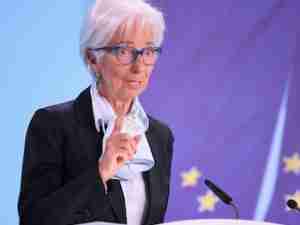(Updates with BCC comments starting in third paragraph.)
(Bloomberg)—Britain’s trade deficit narrowed more than economists forecast in April, helped by exports to China, Saudi Arabia and the U.S.
The goods-trade gap narrowed to 8.6 billion pounds ($13.2 billion) from 10.7 billion pounds in March, the least in 13 months, the Office for National Statistics said in London on Tuesday. Economists had forecast a deficit of 10 billion pounds, based on a Bloomberg survey. Exports rose 2.8 percent, with sales to non-European Union nations surging 4.7 percent.
With trade acting as a drag on growth in recent years, the British Chambers of Commerce has called on David Cameron’s Conservative government to do more to help open markets beyond Europe. While the April data showed an improvement, three-month figures show exports fell 2.5 percent.
“There is no room for complacency,” said BCC Chief Economist David Kern. “We need to see greater focus on encouraging medium-sized businesses to export and to increase their penetration in growing markets outside Europe.”
The ONS also revised data for the first quarter—when net trade knocked 0.9 percentage point off GDP—and the last three months of 2014. While the figures indicate the impact on first- quarter GDP may be less than originally estimated, the ONS wasn’t able to quantify it.
China Prominence
In a separate release, the ONS highlighted the increasing prominence of China, which became the U.K.’s second-largest import partner behind the U.S. last year. Imports rose to 37.6 billion pounds in 2014 from 11.4 billion pounds in 2004, while exports more than quadrupled to 16.7 billion pounds.
Trade with China is dominated by goods, and because imports exceed exports, the U.K.’s goods-trade deficit with the nation has grown to the second-largest after Germany.
In the three months through April, the U.K.’s overall goods deficit widened by 1 billion pounds to 30 billion pounds.
With trade faltering, consumer spending and business investment have driven the economy into its longest stretch of growth since the financial crisis. GDP has now expanded for nine consecutive quarters, though the 0.3 percent rate seen in the first quarter lagged the 0.6 percent pace in the final three months of 2014.
—With assistance from Harumi Ichikura and Joshua Robinson in London.
To contact the reporter on this story: Jillian Ward in London at
[email protected] To contact the editors responsible for this story: Fergal O’Brien at
[email protected]; Jennifer Ryan at
[email protected] Andrew Atkinson
